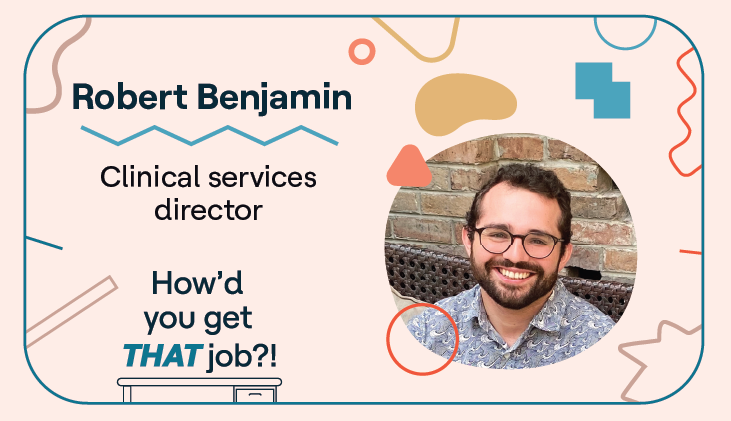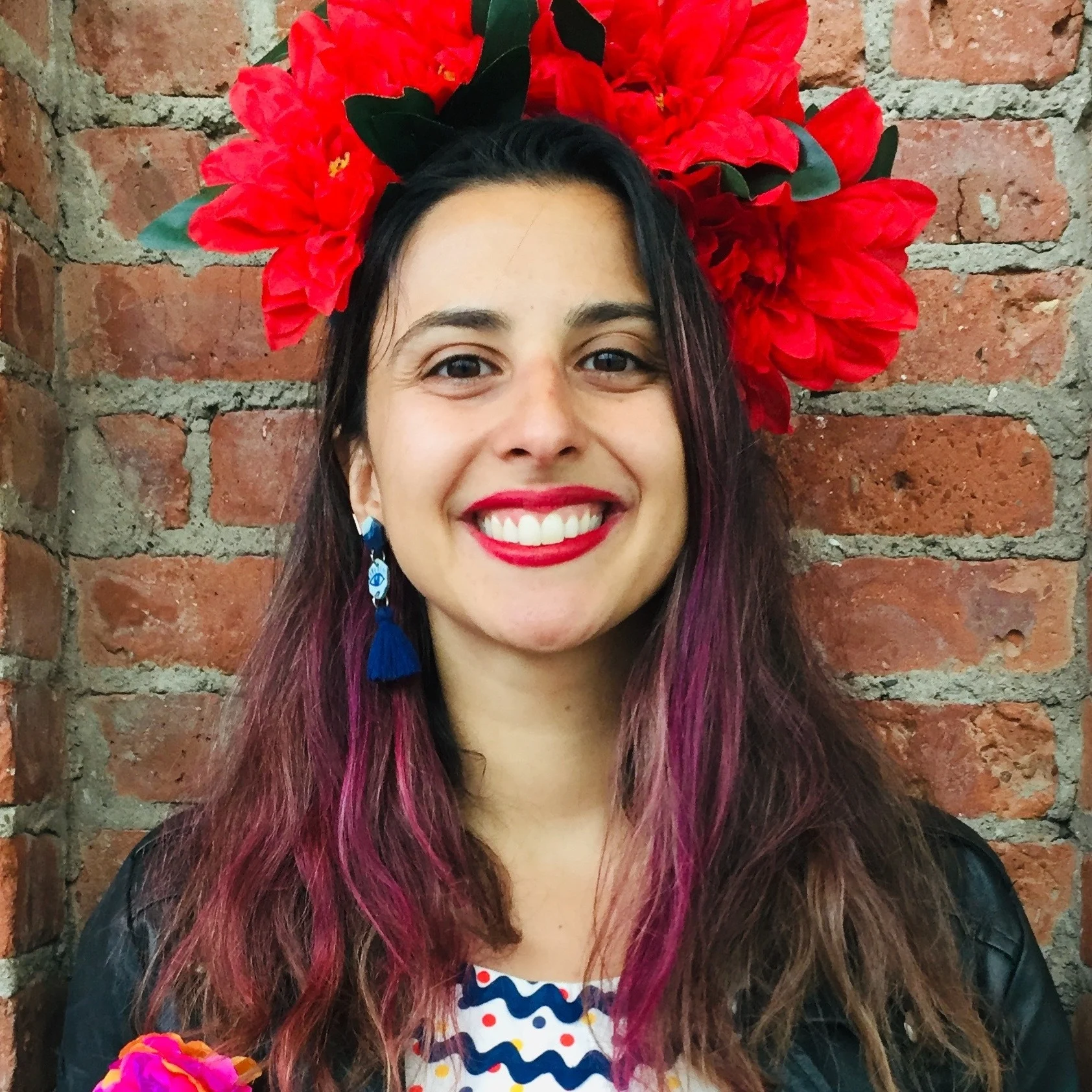Stay in the know
All our latest podcasts delivered right to your inbox.
Robert Benjamin describes himself as an “absentminded professor” because of his struggles with working memory and organization. Robert always knew he wanted to work with kids. He focused on strengths like emotional IQ to get a job managing therapy services for foster kids and their families. Hear how he handles job challenges that come with ADHD and executive function issues.
Listen in. Then:
Watch the video story of Lena McKnight, who went from high school dropout to college student and youth advocate.
Listen to a podcast episode about a teacher with ADHD dedicated to his students.
Check out a video from an Understood team member about thriving with ADHD at work.
Episode transcript
Eleni: From the Understood Podcast Network, this is "How'd You Get THAT job?!," a podcast that explores the unique and often unexpected career paths of people with learning and thinking differences. My name is Eleni Matheou, and I'm a user researcher here at Understood. That means I spend a lot of time thinking about how we find jobs we love that reflect how we learn and who we are. I'll be your host.
Bobby Benjamin works at a foster care agency, where he's the director of clinical services. That means he's a licensed social worker, and he supervises a team of clinicians who work with foster kids and their families. He describes himself as an absentminded professor, because he has challenges with memory and organization and that type of thing.
So, Bobby, could you give our listeners a sense of what it is you do at your job?
Bobby: First, I'm very happy to be on the show. Just very pleased to be here. I work at Cayuga Centers, which is a foster care agency. I work in the Bronx, New York, office. So, I think my job is to see the big picture of how to maintain the well-being — emotional, mental health, well-being — of children and families in foster care.
So the people who work under me we call clinicians, who are, like, individual therapists. I supervise them. So I'm not doing any one-on-one therapy, but my job is to make sure that they have guidance, give the therapist support, especially when they're dealing with a hard case and maybe need to process it. I would say my main job is to be a guide to the clinicians and to hold lots of meetings.
That is my wheelhouse is to hold meetings among various people and bring people together and talk.
Eleni: So, how does ADHD show up for you in a typical workday?
Bobby: In terms of a typical day for me, I think one thing I have to be very attentive to is just my level of energy that I could bring to something, and having some very intense exercise in the morning before work really helps to be much more focused.
So, that's one thing that makes me feel more present. The other thing is, the morning is really when I do things that I know are going to be difficult for me that are maybe high importance but very low reward. I've had my gigantic thing of coffee, and that helps me feel able to take on maybe those administrative things that I would normally at the end of the day, not having any energy or effort or focus on. So, I have to do that in the beginning of the day. And I'll often have some very high-intensity music in the background. Lately, my interest for that has been, like, trip-hop. So, like, very intense beats that don't have lyrics, which is not my normal taste in music, but that's what works for me, focus-wise. The other thing is, a lot of my day is about meeting with people and talking about problems. And one thing I have had to think about is, I will tend to just schedule meeting after meeting. And so, by the fifth meeting, I am completely useless. But if I don't have any meetings, if I don't meet with anybody and I'm just sitting alone in my office, I won't get anything done, either, because I need some kind of stimulus. And meeting with people and talking is very stimulating for me.
Like, I'll have a whole meeting where we plan all the, like, psychiatric appointments for the next week. And just having to run that meeting is very engaging for me. And so, I'm like, OK, how's Jaquan doing on his medication? How many pills does he have left? OK, we can last for two more weeks. So, we’ve got to schedule him no later than next Friday, and then bing bang boom, I'm going through all the kids that have to be seen by their psychiatrist or else they're going to run out of their medications. So, if that helps me focus on gathering information, maybe I could have done this offline, but talking to people really helps organize me.
Eleni: So, when we last spoke, you mentioned you had a really meandering path in terms of how you got to where you are today. Could you give me an overview of how you found your way?
Bobby: I guess the first thing I think about is, I worked as a camp counselor from when I was, like, 14, until, I think, 21 was when I stopped working at that camp. I liked working with kids who were younger than me. I remember I would often look out for the ones that were being left out and try to comfort them, because I had gone through a similar experience when I was a little kid. So, I think that might've been part of it, this idea that I like working with kids.
When I was in high school, one of my favorite teachers, Mr. Donnerbeer, gave me a book called "The Man Who Mistook His Wife for a Hat," which is by Oliver Sacks. And he's a neurologist who has, like, really interesting cases of basically when the brain goes wrong and the strange experiences that can create for people, and, actually, the surprising resilience that people have in still being able to operate.
And I think reading that, I was like, "Oh, I want to do that." So, that got me really interested in psychology. Great thing about college is that you get a very expansive access to lots of different disciplines. And so, I meandered a little bit; I went into a little bit of computer science, a little bit of anthropology, and I liked this holistic view of who people were.
So, I lost track of the wanting to be a psychiatrist in particular, and then kind of mid-college, I struggled a lot with writing papers. My way of writing papers was to procrastinate until the day before, and then use the energy of just sheer terror to then turn out a bunch of pages of stuff. And that worked really well for me until my second semester sophomore year.
And then it didn't. And then all of a sudden, I think lots of things come crashing down. I get diagnosed over the summer with ADHD. And a lot of things started to make sense for me. And that's how I got into Eye to Eye, doing mentorship with kids who have learning differences and ADHD. So, out of college, I had no idea what I wanted to do. But I did know that I really enjoyed mentoring and working with kids with learning differences.
Eleni: You know, it's really common for us to hear that people reach almost a breaking point, which often triggers some sort of diagnosis or just feeling like, "Yeah, I can't really do this anymore. I finally need to do something about this. It's not something I can ignore or minimize or deny any longer." And that kind of prompts them to get help.
So, it's actually not unusual for people to get a really late diagnosis, in college. And I think partly the reason for that is there's a lot of innate structure in school. And then getting to college, people lose that structure.
Bobby: Right. It's so interesting, because you're completely in control of your time. There's no person watching you, telling you, "Hey, you haven't gotten to your homework in a while" or "Hey, it's dinnertime." It's all internal. And I was not very good about that.
Eleni: So, Eye to Eye is actually an Understood partner. And I would love you to tell me from your experience, like, how did that help you learn more about yourself and also what you enjoy doing, which you mentioned was mentorship?
Bobby: Well, what Eye to Eye is, you're with a group of a bunch of other people who also have learning differences and ADHD. So, I think one thing Eye to Eye does just right off the bat is it connects you to a community of people who are going through the same things you're going through. Before getting connected with them, I had no idea — I thought I was diagnosed and unmoored and just by myself.
So, I think one thing that Eye to Eye does is just create that sense of community. They're really good about that. We had a local elementary school that we went to, and we were meeting with fourth graders who had learning differences and ADHD. And boy, at that age, like, doing well in school is your identity. And so it's so much a part of your identity that it's really hard just emotionally.
And so you get paired with maybe one or two kids that you're following through the whole curriculum. And what you see is, like, you're paying attention to their strengths, and then they start to think about their strengths. And they're thinking about ways of coping. And then also you start applying some of these things to yourself.
Because, I remember one time I was talking to this 10-year-old girl through, like, how to advocate for yourself. And then I thought to myself like, "Well, I need to advocate for myself. That's something I need to do just for me, not just to teach her about." So, it was also just really helpful. I think sometimes teaching can be a great learning tool as well.
Eleni: Definitely.
Bobby: Just to see them develop over the academic year where you have this very, like, quiet, reserved child who like, maybe isn't thinking much of herself, to being able to say, like, near the end of the curriculum, "I have ADHD and I'm proud." It's just an amazing thing.
Eleni: That's awesome. And you mentioned that through this experience, you were able to learn how to also self-advocate for yourself. What does that mean to you, and, like, how do you ask for what you need?
Bobby: Some of it is, I think, just being very up-front about where my challenges are. I might say, "OK, you're telling me something verbally — great, but can you follow it up with an email or something? Because I am going to get distracted and forget." Sometimes I'll put that in the context of "I don't have the greatest working memory," but other times I just put it in the context of "This kind of works better for me if you follow it up with an email." And people usually are pretty accommodating in terms of those kind of asks.
Eleni: Do you talk to your work colleagues about your ADHD?
Bobby: I tend to focus on the symptoms that impact other people versus talking about a diagnosis. Because sometimes when you say you have ADHD, especially for somebody who is on the more inattentive end of ADHD, like, people get basically the opposite impression. They'll say, "Well, you don't seem hyperactive; you don't seem like you're bouncing all over the walls."
Because that's not my experience with ADHD, so I tend to really focus on, OK, what are the things that are really going to impact you? Well, one thing might be, if you tell something to me, am I going to need a reminder? And so, another thing I'll say is, "Well, if you haven't heard back from me by the end of the day, remind me again tomorrow morning, because I might've gotten caught up in something."
Eleni: You know, that might also be the case for some of our listeners. They might not know that there are different types of ADHD. Can you describe what is the difference between inattentive and hyperactive ADHD and how that shows up for you?
Bobby: Sure. So, hyperactive ADHD is kind of what people normally think about when they think of ADHD. They think about the boy in class who just seems to have a ball of energy. And he's, like, running around the class, touching everything, maybe super impulsive. And then you have the inattentive type, who might be very quiet and instead, maybe an unkind term for them would be, like, a "space cadet." But you might be sitting there thinking about, "Oh, I wonder what we're going to have for lunch today." Not paying attention, maybe, to the grammar lesson that you didn't find very interesting. So, what tends to happen is inattentive ADHD tends to get missed, because it tends not to present as a problem. Because kids tend to be quiet and to be maybe well behaved, but you tend not to notice the ones who get lost in their own attention as much.
Eleni: Yeah. So earlier you mentioned the word "space cadet," and you said that that could be an offensive term. Has anyone actually outwardly called you that when you were younger, as a kid, or even as an adult in the workplace? And how has that come up?
Bobby: I think people, at least when I was a kid, would notice when I spaced out. My mom put it in a much friendlier way. She called me the absentminded professor. And I think that's a great encapsulation of who I am, is that it acknowledges that I'm very absentminded and sometimes space out, but it also acknowledges that I am intelligent and that I am smart. And that those two things are different. My ability to pay attention and my intelligence are different things.
Eleni: And you also mentioned working memory.
Bobby: Yes.
Eleni: How might having inattentive ADHD impact your working memory?
Bobby: So there are two ways. One is I might not have 100 percent of my attention on you and you tell me something, and I haven’t processed it. And so there's no memory to form. The other way though, is that sometimes even if I am paying attention, it's completely clear — it just doesn't store. Or, like, imagining working memory is a bunch of papers on my desk. And so they're all going to be ready to be filed at the end of the day, but then somebody slams this big pile that scatters all the rest. And so I've lost those other bits of memories, because maybe something big that grabbed my attention wipes those away.
Eleni: That's a great visualization.
Bobby: Yeah.
Eleni: And before you started your current job, did you have any idea how challenges with working memory might show up for you at work or, like, maybe something that showed up that you didn't expect? It could have been a challenge. It could have actually been a skill or a strength that you didn't expect, but in the environment that you're in, you realize that actually this could work in your favor.
Bobby: The one thing I didn't realize could be a strength is kind of my ability to shift. Because I've noticed that I'm very good at pulling out conflict and pulling out when I think — and this can sometimes be a disruptive thing. This is sometimes perceived, maybe, as being disruptive. But in some meetings I'll notice when maybe not everybody agrees, but we're going along with something. And I tend to be pretty good at calling that out. And I think impulsivity that I have is about really voicing where I hear disagreement, and that leads to some very productive conflict. But other people might sit back. I guess that's more the impulsive end of ADHD, but you might sit back for fear of stirring the waters. And I'm very OK with stirring the waters because I know that conflict can often produce better outcomes, get more consensus, actually, in the long run. So, I tend to be more comfortable with conflict.
Eleni: And it sounds like you're able to pull threads together or maybe notice things that are under the surface that other people are overlooking.
Bobby: Yes. And I think that stems from the ADHD. I think it's the variable attention, meaning that sometimes I'm looking for things, whereas other people might be focused on the strict content of the meeting. And I might be noticing that somebody is quieter than they usually are. I think in terms of how it affects my work and maybe how people perceive it, is it can be sometimes difficult to prioritize. The thing I often ask of people who supervise me is "What do I really need to focus on today? If I need to get something done today, what does that need to be?" Because my attention shifts so easily, it can be hard to prioritize and stick to maybe something that gives me less of a dopamine hit, but it's actually really important, versus things that I am enjoying doing more, but could probably have been pushed off until later.
Eleni: So I want to bring it back a little bit, because we started talking about your meandering path. And you mentioned that originally you were interested in psych, you got to college and you became part of Eye to Eye, realized that you really enjoyed mentorship, that kind of, like, reinforced the previous experience that you had as a camp counselor, where you were also interacting with kids. And that's kind of as far as we got in terms of your journey. So I would love to hear a little bit more about how those things led you to your current role as director of clinical services. And also, I know that you said your path was quite meandering, but you also told us that the ADHD mind often follows inspiration.
Bobby: Right.
Eleni: So could you talk a little bit about how that applies to you and, like, ultimately how that got you to where you are now?
Bobby: When you're talking about the difference between having a goal at the end of something versus exploring your interests, I think about that in terms of the way that people think about sailing, for example. Like, sailing, you might have a map of your destination, and then you just chart a course toward that destination. Whereas other people, other cultures, will kind of navigate by going to the next landmark or by going along with the currents and with the prevailing winds, but you might go from one point to the next, along the way. And so I think of my path as kind of like that. I'll start on, like, maybe one island. I kind of see what might be next there, and I'd sail to that next island. And it pushes me one way or the other. I don’t have any sense of if I'm going to end up being in Australia or Japan, but I kind of might be able to see the next way point.
Eleni: I would love for you to sail me back to Australia.
Bobby: I've never been to Australia, so I would love to go.
Eleni: So, tell me, what were the islands that you stopped at along the way to get you to where you are now?
Bobby: I graduated from college, and I think that feeling was maybe feeling lost at sea, not really knowing which way to go. But I thought about what I did know, and what I did know is that I really enjoyed working with kids. I really enjoyed Eye to Eye. So maybe I could work with kids like that, with kids who have learning differences. And where can I do that?
So, the first place I went to was a school. And I think a school is almost, like, a collection of islands, because you get to see different islands of teachers. One island might be a history teacher, a math teacher, or a social worker, or a principal, and you get to see all those different roles and you can see maybe that island has a volcano and you want to avoid that one, but this one looks pleasant. It's got some swaying trees, and maybe it's got a nice river going through it. And so you sort of head toward that. So at the time, I'm sort of, I guess, in this archipelago? Is that a collection of islands? And the schools are great for that. The name of the position was instructional assistant, but I got to go into a bunch of different classrooms.
I briefly thought about teaching, and I did sort of enjoy some of that. But I was noticing, hey, a lot of these kids have difficult economic circumstances. Like, one of my kids was having trouble in class not just because he had dyslexia, but also because he had spent the night before until 2 helping to watch his 2-year-old sister because his mom had to work late.
So when I saw that, I could see that there are these circumstances. There are these people's lives that are really actually impacting their academics. And I wasn't going to be able to help him by tutoring him on a math problem, at least not in that moment. And so I thought, "Well, where do I go to do that? Where do I go to help?"
And that led me to social work. So I went to get my master's in social work. I guess I had a prevailing wind, or I guess a crosswind pushing me to a different island where I was working with adults who were homeless. And that got me a picture of poverty. Because working with kids, you're not just working with kids. You're working with their parents, as well.
And then I got blown back on course. I worked in an elementary school doing counseling with elementary students and just really enjoyed that work. So then I moved with my spouse down to New York. We're charting a new course in the sea and I think — I remembered that a friend I had met in my grad program was himself a foster child.
And so I thought, "I wonder what foster care is like" — that would meet this need of wanting to work with a vulnerable population and wanting to work with kids, that would combine those two. So perhaps naively at the time, I thought, "OK, let me apply to be a therapist." And then that got me connected to Cayuga Centers. And then I guess I took a very traditional path of rising through the ranks.
Eleni: Yeah. I would love for you to tell me what is it that you really love about your job? And why you think it is ultimately, like, a good fit for you, whether that's the work itself or the environment?
Bobby: Yeah. I love my job in some sense because it's a job that not a lot of people want to do.
I find that very valuable — is that not a lot of people want to work with kids who've been through some of the most difficult experiences and sometimes come at you with a lot of anger that is displaced from their circumstances, from what they've had to deal with. And I like at least the potential for it being a reparative experience. Being somebody that could be safe in maybe a world that doesn't feel very safe. And to bring that to kids who have been through some of the worst experiences that a kid can go through, it's really affirming. And I think that's how I can maybe deal with the fact that progress is very slow. Just knowing that I'm making some kind of impact day to day on people who really need me to make an impact.
Eleni: I'm so happy you found that for yourself and then also other people have you.
Bobby: Thank you.
Eleni: Thanks for being here, Bobby.
Bobby: Yes. Thanks so much for having me, Eleni.
Eleni: This has been "How'd You Get THAT Job?!," a part of the Understood Podcast Network. You can listen and subscribe to "How'd You Get THAT Job?!" on Apple, Spotify, or wherever you get your podcasts. And if you like what you heard today, tell someone about it. "How'd You Get THAT Job?!" is for you. So we want to make sure you're getting what you need. Go to u.org/thatjob to share your thoughts and to find resources from every episode. That's the letter U, as in Understood, dot O R G, slash that job.
Do you have a learning difference and a job you're passionate about? Email us at thatjob@understood.org. If you'd like to tell us how you got THAT job, we'd love to hear from you. As a nonprofit and social impact organization, Understood relies on the help of listeners like you to create podcasts like this one, to reach and support more people in more places. We have an ambitious mission to shape the world for difference, and we welcome you to join us in achieving our goals. Learn more at understood.org/mission.
"How'd You Get THAT Job?!" is produced by Andrew Lee and Justin D. Wright, who also wrote our theme song. Laura Key is our editorial director at Understood. Scott Cocchiere is our creative director. Seth Melnick and Briana Berry are our production directors. Thanks again for listening.
Host
Eleni Matheou
leads user research for Understood. She helps Understood to center its work on the lived experiences and voices of people who learn and think differently.
Latest episodes
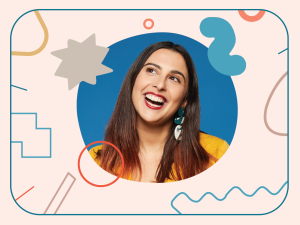
June 28, 2023
In the series finale of How’d You Get THAT Job?!, host Eleni Matheou unpacks what we’ve learned about how people thrive at work.

June 14, 2023
Nathan Friedman is the co-president and chief marketing officer of Understood.org. And he has dyslexia and ADHD. Learn how he got into the C-suite.
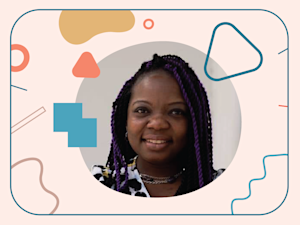
May 31, 2023
Dr. Loucresie Rupert is a child, adolescent, and adult psychiatrist with ADHD. She didn’t have an easy time getting her diagnosis as a Black woman.
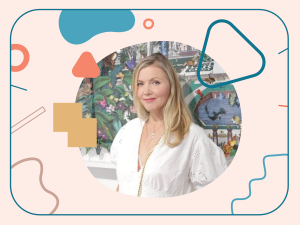
May 17, 2023
Kristjana Williams is a London-based Icelandic artist with dyslexia. She wasn’t diagnosed until she was 25, and now she has her own studio.

May 3, 2023
Aideé Chávez Frescas has ADHD, and is a senior social media manager at Understood. Her posts help end stigma and show others they’re not alone.
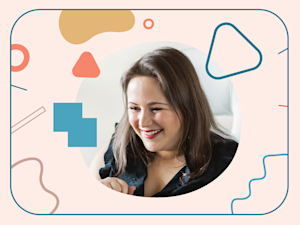
April 19, 2023
Alex Gilbert is a career coach with ADHD and dyslexia. After working in leadership development for years, she started her own coaching business.
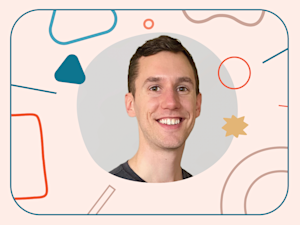
April 5, 2023
Dan Reis was diagnosed with ADHD during the pandemic. Now, he’s made it his mission to explore coping strategies to help him get his work done.
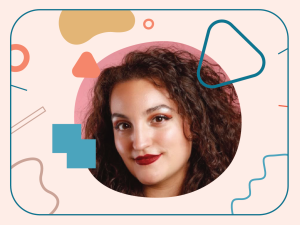
March 22, 2023
Rachel Basoco’s two jobs keep things interesting for her ADHD. She works full time at Fidelity, and part time at 11:11 Media, Paris Hilton’s company.
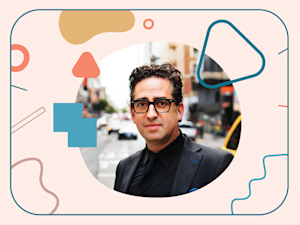
March 8, 2023
Gil Gershoni says that everything he does is dyslexic. He founded the branding firm Gershoni Creative and hosts the Dyslexic Design Thinking podcast.
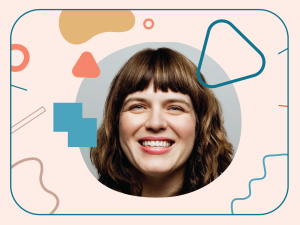
February 22, 2023
Claire Odom is a psychotherapist with ADHD. She’s also a disability inclusion consultant who has advice on navigating the workplace.
